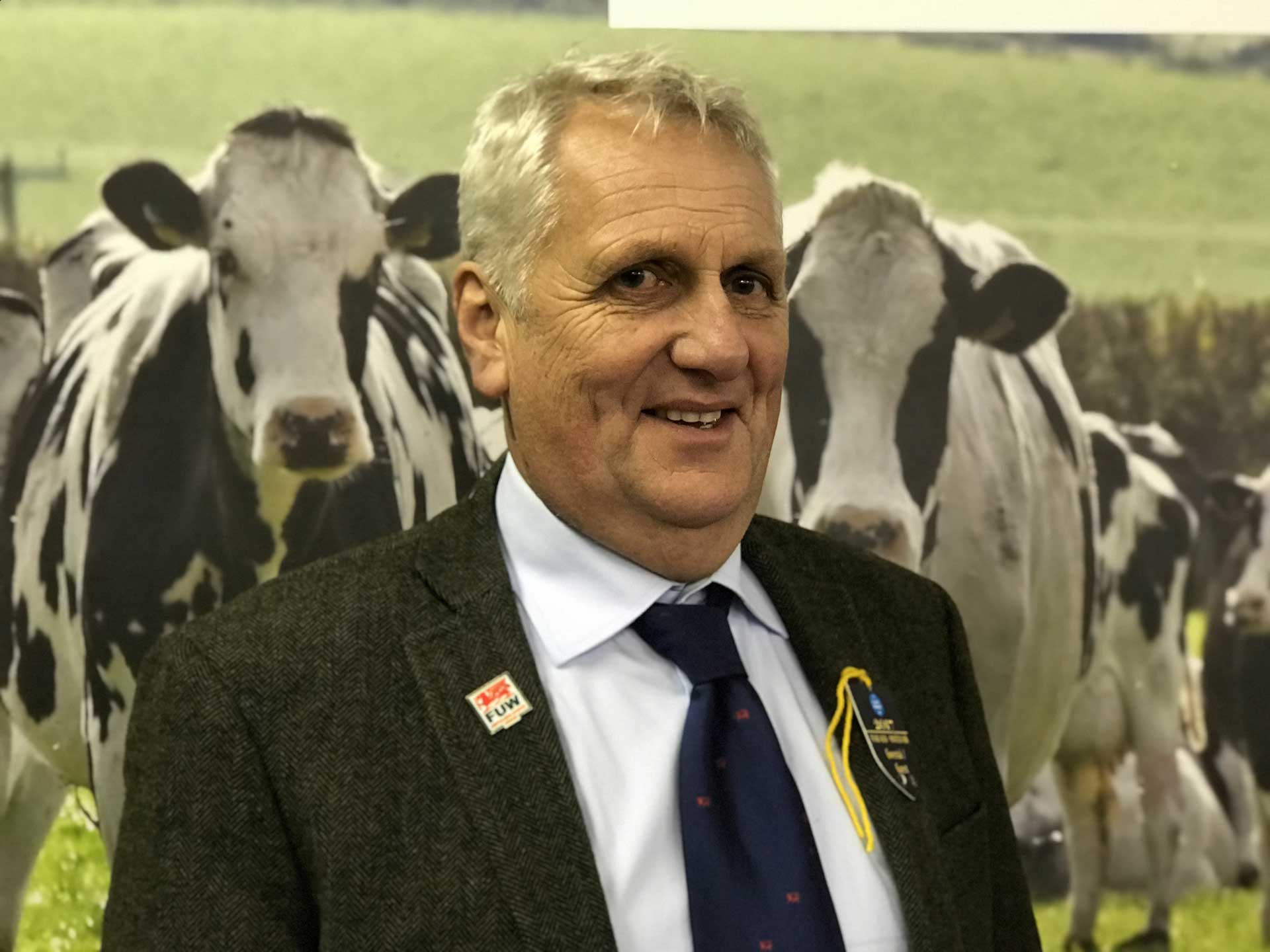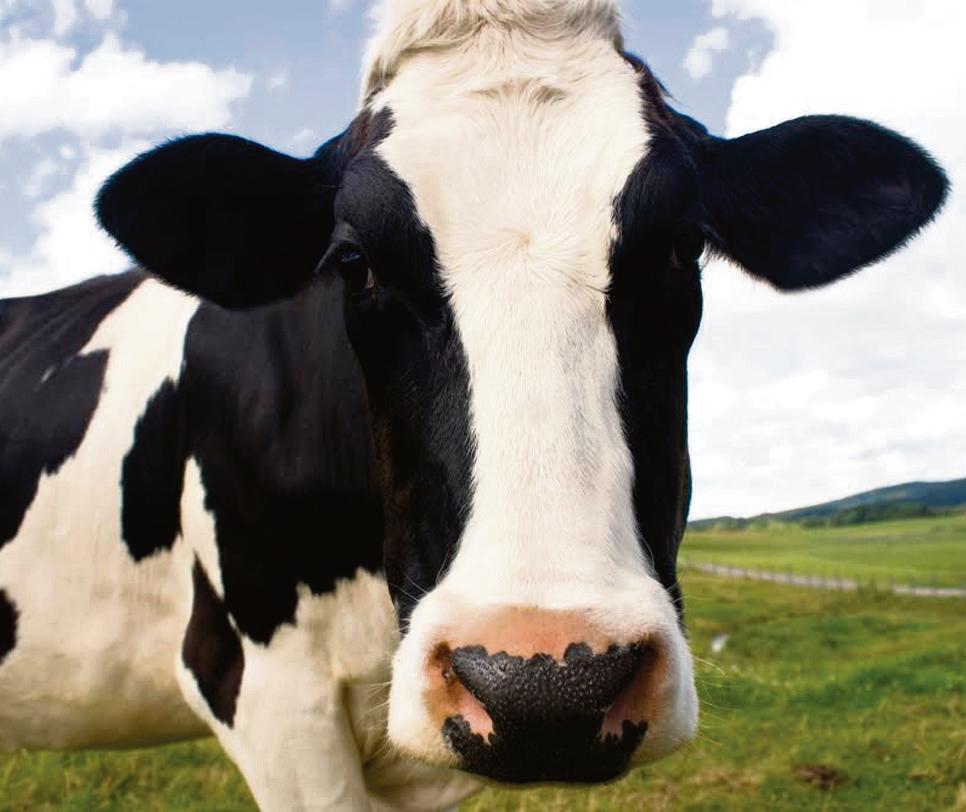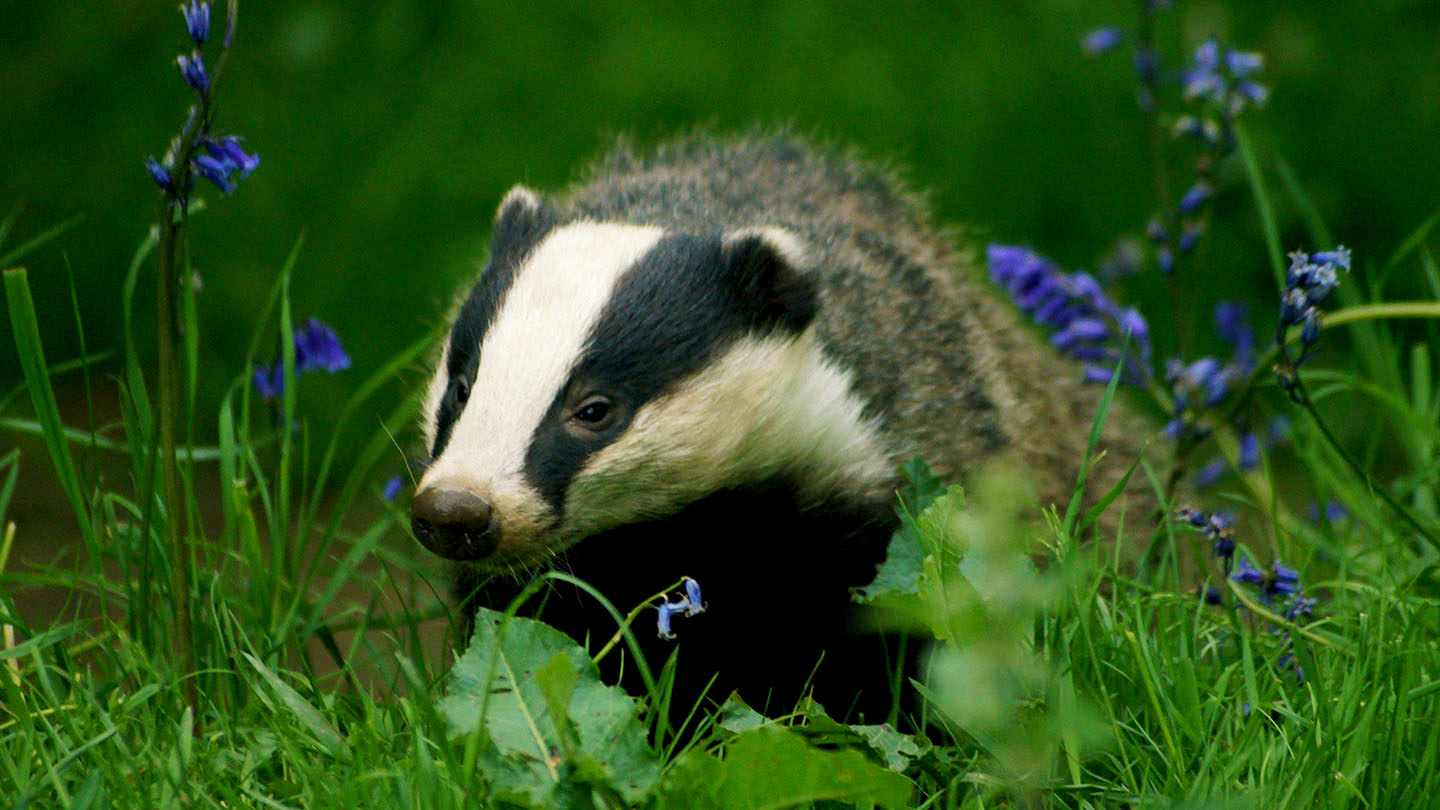Farming
FUW President’s New Year Message

AS WE start 2018, despite all the uncertainty around Brexit, I feel there is cause for optimism – certainly more than there was twelve months ago.
Key messages put forward by the FUW in 2016 and 2017, which originally appeared to have been shunned or contradicted by the UK Government, are now being adopted; words like ‘transition’ have replaced the ‘no deal is better than a bad deal’ type rhetoric, and most have now joined the FUW in recognising that a post-Brexit UK framework for agriculture, agreed in partnership between Governments, should protect, not undermine devolution and our devolved Nations. Meanwhile, on the domestic front, our call for a more proportionate and targeted approach to Nitrate Vulnerable Zones has been accepted.
However, in 2018 we need to ensure such moves towards sensible and proportionate policies stay on track, and are not put off course by those who have little understanding of or care for the practical needs of businesses and family farms.
With 2018 likely to involve further regular meetings with Welsh and UK Ministers, as well as with Welsh Assembly and Westminster committees, the FUW will continue to raise such points, while also pushing for practical solutions through the numerous committees we sit on.
We must also be realistic about the challenges facing us over the coming year: The forthcoming negotiations on the future trading relationship between the UK and EU will have an impact on each and every Welsh farm business and businesses which interact with them; each of the 27 remaining Member States will have priorities in terms of future trade agreement, and we must therefore ensure that Welsh agriculture is not left out in the cold or disadvantaged in the final trade agreement.
Meanwhile, issues such as bovine TB, animal movements and the new approach to tackling nitrate and other pollution levels will take up considerable time as we work to achieve common sense solutions for farm businesses, and lobby for changes which reflect the many problems and obstacles faced by our members.
Whether it is dealing with individual problems on behalf of members, working to achieve sensible changes to legislation which help farm businesses or lobbying for a sensible outcome to Brexit, the FUW will continue to do its utmost in 2018 to ensure the Welsh family farm is recognised and protected.
Given the uncertainties we face over the coming years, it is more difficult than ever for those family farms to make plans for the future. In terms of securing farm business resilience in the coming years I believe that it is essential to thoroughly analyse financial situations, and work for efficiencies. This will assist with planning as best as possible for the future, ensuring the best possible future for our businesses.
I wish you all a happy and prosperous New Year.
Farming
Welsh Conservatives warn climate plans could mean fewer livestock on Welsh farms

THE WELSH CONSERVATIVES have challenged the Welsh Government over climate change policies they say could lead to reductions in livestock numbers across Wales, raising concerns about the future of Welsh farming.
The row follows the Welsh Government’s decision, alongside Plaid Cymru and the Welsh Liberal Democrats, to support the UK Climate Change Committee’s Fourth Carbon Budget, which sets out the pathway towards Net Zero greenhouse gas emissions by 2050.
The Carbon Budget, produced by the independent Climate Change Committee (CCC), states that meeting Net Zero targets will require a reduction in agricultural emissions, including changes to land use and, in some scenarios, a reduction in livestock numbers.
During questioning in the Senedd, the Welsh Conservatives pressed the Deputy First Minister and Cabinet Secretary for Climate Change and Rural Affairs on whether the Welsh Government supports reducing livestock numbers as part of its climate strategy.
Speaking after the exchange, Welsh Conservative Shadow Cabinet Secretary for Rural Affairs, Samuel Kurtz MS, said the Welsh Government could not distance itself from the implications of the policy it had backed.
Mr Kurtz said: “By voting in favour of these climate change regulations, Labour, Plaid Cymru and the Liberal Democrats have signed up to the UK Climate Change Committee’s call to cut livestock numbers in Wales, and they cannot dodge that reality.
“The Deputy First Minister’s smoke-and-mirrors answers only confirm what farmers already fear: that Labour, along with their budget bedfellows in Plaid and the Lib Dems, are prepared to sacrifice Welsh agriculture in pursuit of climate targets.”
He added that the issue came at a time of growing pressure on the farming sector, pointing to uncertainty over the proposed Sustainable Farming Scheme, the ongoing failure to eradicate bovine TB, nitrogen pollution regulations under the Nitrate Vulnerable Zones (NVZs), and proposed changes to inheritance tax rules affecting family farms.
The Welsh Government has repeatedly said it does not have a target to forcibly reduce livestock numbers and has argued that future emissions reductions will come through a combination of improved farming practices, environmental land management, and changes in land use agreed with farmers.
Ministers have also said the Sustainable Farming Scheme, which is due to replace the Basic Payment Scheme, is intended to reward farmers for food production alongside environmental outcomes, rather than remove land from agriculture.
The UK Climate Change Committee, which advises governments across the UK, has stressed that its pathways are based on modelling rather than fixed quotas, and that devolved governments have flexibility in how targets are met.
However, farming unions and rural groups in Wales have warned that policies focused on emissions reduction risk undermining the viability of livestock farming, particularly in upland and marginal areas where alternatives to grazing are limited.
The debate highlights the growing tension between climate targets and food production in Wales, with livestock farming remaining a central part of the rural economy and Welsh cultural identity.
As discussions continue over the final shape of the Sustainable Farming Scheme and Wales’ long-term climate plans, pressure is mounting on the Welsh Government to reassure farmers that climate policy will not come at the expense of the sector’s survival.
Farming
FUW Insurance Services appoints Paul Jameson as non-executive director

Experienced insurance and risk specialist joins board as long-serving director retires
FUW INSURANCE SERVICS LTD, Wales’ leading specialist agricultural insurance broker, has announced the appointment of Dr Paul Jameson as a non-executive director.
Dr Jameson brings extensive experience in insurance and risk management, having worked as an actuary and senior executive within subsidiaries of major global insurers including Allianz, Munich Re, Legal & General and Wakam. He has held chief risk officer roles since 2020.
During his career, Dr Jameson has led multidisciplinary teams spanning actuarial services, risk management, compliance, audit, legal and marketing approvals, giving him broad experience in both strategic oversight and operational governance.
Speaking following his appointment, Dr Jameson, who lives in Colwyn Bay, North Wales, said he was looking forward to supporting the farming sector in Wales.
He said: “I am delighted to join FUW Insurance Services and would like to thank Ann, Guto and the rest of the team for their warm welcome.
“I have been impressed by the passion and commitment of the board to the farming community, and by its ambition to grow and diversify the insurance business. I am keen to support the farming profession and help ensure the continued success of the sector in Wales, particularly during periods of economic and geopolitical uncertainty.
“I hope my experience in the insurance sector will help the business build on its successes and continue to grow, especially as it explores new commercial opportunities and innovative avenues for expansion.”
Ann Beynon OBE, chair of the FUW Insurance Services board, said Dr Jameson’s expertise would be a significant asset to the organisation.
She said: “We are delighted to welcome Dr Paul Jameson to the board. His depth of experience in insurance and his understanding of risk management will be invaluable as we continue to develop and diversify our services.
“Paul’s insight and strategic perspective will help us navigate a changing insurance market, identify new opportunities for innovation and growth, and strengthen the services we provide to our customers.”
Dr Jameson’s appointment follows the retirement of Ken Isherwood, who has stepped down from the board after more than a decade of service.
Paying tribute, Ann Beynon said: “Ken’s integrity, wisdom and deep knowledge of the insurance industry have underpinned much of our success.
“It has been a privilege to work alongside him, and we wish him every happiness in his well-earned retirement.”
Community
Badger Trust launches manifesto ahead of 2026 Senedd elections

THE BADGER TRUST has published a new Cymru Badger Manifesto calling on candidates standing in the 2026 Senedd elections to commit to a science-led approach to bovine tuberculosis (bTB) and to maintain Wales’ current policy of not culling badgers.
The manifesto, released on Wednesday (Dec 10) as part of the charity’s Badgers Belong Here / Mae Moch Daear yn Perthyn Yma campaign, sets out the organisation’s position on badger protection, wildlife crime and bTB control, and urges politicians to reject calls for the reintroduction of culling in Wales.
Badger Trust argues that political decisions taken during the next Senedd term will be critical to the future of badgers, which it describes as culturally and ecologically significant to Wales. The charity says badgers have been present in Wales for more than 250,000 years and remain part of Welsh folklore, place names and rural identity.
Five key commitments
The manifesto outlines five commitments the charity is asking Senedd candidates to support, including defending what it describes as science-led policy on bTB, challenging misinformation in public debate, strengthening enforcement against wildlife crime, recognising badgers as part of Welsh heritage, and supporting local volunteer badger groups.
According to Badger Trust, 140 incidents of badger-related wildlife crime have been recorded in Wales since 2020, which it says highlights the need for improved reporting and enforcement.
The charity also points to the work of six active badger groups across Wales, which it says assist with rescuing injured animals, monitoring setts, recording road casualties and supporting local authorities.
bTB policy in Wales and England
Wales has not carried out widespread badger culling as part of its bTB control strategy, instead focusing on cattle testing, biosecurity measures and herd management.
Badger Trust claims that new herd incidents of bTB in Wales fell by more than 40% between 2010 and 2024, which it attributes to cattle-based controls rather than wildlife intervention.
The charity contrasts this with England, where it says almost 250,000 badgers have been culled over the past decade as part of bTB control programmes. It argues that bTB rates in England remain higher than in Wales and that the evidence does not show culling alone to be responsible for reductions in disease.
Disputed claims over culling
The manifesto challenges the frequently cited claim that badger culling in England led to a 56% reduction in bTB in cattle. Badger Trust says this figure has been misinterpreted and that studies cited in support of culling also involved additional measures such as enhanced cattle testing and biosecurity.
The charity points to statements from researchers and official correspondence which, it says, indicate that reductions in bTB cannot be attributed solely to culling.
Supporters of culling, including some farming groups, continue to argue that wildlife control should remain an option as part of a wider disease management strategy, particularly in areas with persistent infection. The Welsh Government has previously said it keeps its bTB policy under review in line with emerging evidence.
Call to candidates
Nigel Palmer, CEO of Badger Trust, said Wales demonstrated that bTB could be tackled without killing wildlife.
He said: “Wales is a world-leading example of how to address bovine TB through evidence-based policy. The progress made here shows that culling is not necessary, and we urge Senedd candidates to stand by the science.”
The manifesto is available in both Welsh and English and will be circulated to political parties and candidates ahead of the 2026 election.
-

 Crime3 days ago
Crime3 days agoMilford Haven man jailed after drunken attack on partner and police officers
-

 News6 days ago
News6 days agoDyfed-Powys Police launch major investigation after triple fatal crash
-

 Crime3 days ago
Crime3 days agoTeenager charged following rape allegation at Saundersfoot nightclub
-

 Crime4 days ago
Crime4 days agoMan charged with months of coercive control and assaults
-

 Crime5 days ago
Crime5 days agoMan sent to Crown Court over historic indecent assault allegations
-

 Crime5 days ago
Crime5 days agoMilford Haven man admits multiple offences after A477 incident
-

 Crime4 days ago
Crime4 days agoWoman ‘terrified in own home’ after ex breaches court order
-

 Crime6 days ago
Crime6 days agoTrefin dog case ends in forfeiture order after protection notice breach



































